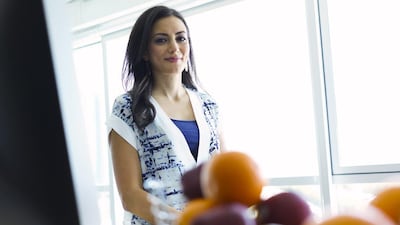January is the time of year when many people attempt to throw out the fast-food takeaway menus and dust off the juicer.
But long gone are the days when freshly squeezed plain orange juice seemed exciting. In fact, juicing is now more likely to mean a wondrous concoction, often named after its miraculous claimed benefits, containing a dazzling range of colourful superfoods.
Ayurveda juices, which are based on the 5000-year old Indian system of natural healing, are all the rage, according to Meenaxy Vashishtha, an Indian Dubai resident who leads juicing company Go Organic ME, launched last year. Its range of six Ayurveda “purity cleanse” juices contain such medicinal plants as Indian gooseberry, brain tonic (shanks pushpin, reputedly a memory enhancer) and Ayurveda-activated charcoal “for the ultimate detox”.
“The public is becoming much more aware of Ayurvedic medicine,” says Vashishtha. “We travel every three months to the mountains of Rishikesh in India, to source the juices from holistic ashram retreats.
“The results have been great. The juices taste nice and sweet, and they’re now our most popular products.”
At Dh275 for a 500ml bottle, an Ayurveda cleanse does not come cheap. But Vashishtha says that juices in the UAE are less expensive now than they were two years ago, and the falling prices are encouraging more people to take up the juicing habit.
“It used to be just western expats, but now a lot of Arabs and Asians are getting into juicing too,” she says. “We also see a lot of Indians ordering our detox juices.”
Abu Dhabi-based nutritionist Yara Radwan, from Syria, urges caution with juicing and advises against using it as a way to detox.
“Many juicing companies are promoting that these days, but I wouldn’t advise it because you’re cancelling so many other food groups necessary for the body,” she says.
“It’s good to have the juice or smoothie as part of a balanced diet, but not instead of other food. The craze for ‘clean eating’ is going to the extreme, and eating disorders are on the rise because of this.” Radwan also advises against using juice diets in an attempt to lose weight quickly.
“The rapid weight loss will be mostly water and muscle, and it can slow down the metabolism,” she says. “The weight will be regained, and some more, when you go back to normal eating habits.”
Although not a fan of the detox trend, Radwan is in favour adding popular detox veggies kale and spinach to juice drinks.
Spinach, as the vintage cartoon character Popeye might attest, can boost vitality, and recent research shows that taking spinach in juice form is the healthiest way to consume it. Kale, meanwhile, is thought to be one of the most nutrients-dense foods.
“I’m experimenting with kale in my smoothies – but I also go out for dinner and have dessert,” says Radwan. “You have to allow yourself an occasional treat.”
You might expect these wholesome foods always comes in liquid form – but think again. From next week, American company Juice Plus+ will sell vegetable and fruit-juice powders in capsule form for the first time in the UAE.
The company, which has been around for more than 40 years in 20 countries, uses network marketing to spread the word.
“I’ve always been a bit dubious about anything like this,” says Maggie Jackson, who signed up to be an Abu Dhabi sales representative. ”But I have a very good girlfriend in New Zealand who swears by this product.”
Jackson has been taking six capsules every day since November, which contain more than 30 types of fruit and vegetables.
At just Dh10 a day, this is cheaper than ordering fresh liquid juice from delivery companies.
“After three weeks, even my husband told me my skin was looking more buoyant,” she says. “And I didn’t get the ‘Christmas cold’ that was going around, like I normally do.”
Jackson admits she does not always eat as healthily as she should. “I don’t think any of us do – that’s why I like knowing that I’m taking something that’s bridging that gap between what I eat, and what I should eat,” she adds.
Similar gaps in his diet led Emirati Hamad Abu Shousha, 24, to start juicing two years ago. “Until I was 21, I’d never ordered a salad in my life, and I’d always order my sandwiches plain,” he says. “These days, I include lots of vegetables in my smoothies because I know that otherwise, I wouldn’t eat them.”
Last year, Shousha launched the UAE’s first juice-themed food lorry, Seasons UAE, which has toured events including Taste of Abu Dhabi and the Abu Dhabi Grand Prix.
Four of the nine juices on his menu contain spinach, including the most popular smoothie: the Mango Rita. “Some people get put off by the spinach but it tastes really nice in a juice, which surprises them,” he says. The Dh30 drink also contains mango, lime, orange, coconut water and pineapple.
Shousha feels that although juicing is becoming more popular among Emiratis, there’s still some mystery surrounding it and more education is needed.
“Most people don’t yet understand the difference between freshly made juices with superfoods, and the sweet juice drinks you find in many juice bars,” he says.
artslife@thenational.ae

